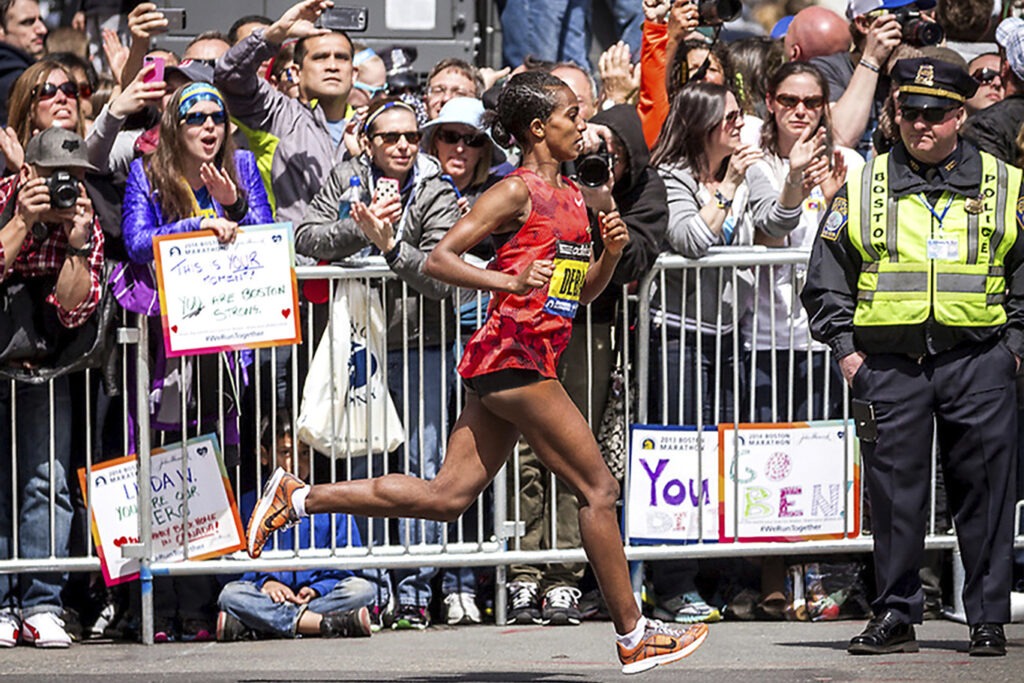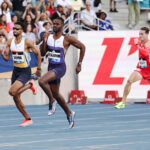After more than 10 years, 2014 Boston Marathon winner Buzunesh Deba will finally receive her $100,000 prize following a new voluntary payments program for athletes impacted by doping offenses at Boston Athletic Association races.
BAA announced on Monday that any runners who believe they were excluded from prize money and higher finishing positions in events the organization hosts will be contacted by the end of the year, with payments beginning in January 2025.
“While the multi-step process to reclaim and redistribute prize money has been complex and time consuming for all involved, we have worked — and continue to work — diligently towards a resolution that supports clean athletes while still holding all athletes accountable,” Jack Fleming, president and CEO of the BAA said in a statement “Athletes will receive the prize money they rightfully earned at our races with these payments.”
Still, for affected athletes — and Deba in particular — the road to claiming prize money has been lengthy.
At the 2014 Boston Marathon, Rita Jeptoo crossed the finish line first and won $150,000 and a $25,000 bonus for setting the course record in 2:18:57. She was stripped of her title in 2016 after testing positive for a banned substance in late 2014.
Jeptoo tested positive for EPO, based on an out-of-competition sample taken in Kenya in September 2014, months after her win in Boston and weeks before she won the 2014 Chicago Marathon in 2:24:35. She was given a two-year ban from Athletics Kenya and later given a longer ban from the Court of Arbitration that extended the ban until 2018. Both wins in Boston and Chicago were stripped.
Jeptoo also won the Boston Marathon in 2006 in 2:23:38.
However, Deba, now 36, placed second in Boston in 2014 in 2:19:59 and has waited for her $75,000 prize and $25,000 bonus after the BAA failed to compensate her following Jeptoo’s ban. Under the new voluntary payments program, Deba will receive the largest payout under the initiative along with being elevated as the 2014 Boston champion.
Worku Beyi, Deba’s husband, told The Boston Globe on Monday from Ethiopia that she cried and was thankful. The nearly ten-year process is nearing and end and the money would be used to help pay bill and contribute to her training.
As Deba’s ordeal continued to drag out over the years Doug Guyer, a Philadelphia businessman, sent her $75,000 of his own money after the BAA delayed its action to remedy how to sort out payments surrounding the 2014 race.
“The B.A.A. is identifying and contacting athletes whose results were re-ranked due to a disqualification within prize money placings since 1986, when prize money was first offered,” the BAA said in a statement on Monday. “For any athlete whose finishing place among the prize money positions was adversely affected by the ultimate disqualification of another athlete, the B.A.A. will issue a voluntary payment for the difference the athlete did not receive due to re-ranked results.”
Around 80 checks will be sent to impacted athletes in January who ran in eight Boston Marathons from 2003 and 2016, and other races like the Boston 5k and Boston Half, with nearly $300,000 set aside for these initial payouts.
And while Deba’s case is the most notable in BAA-affected events, dozens of other athletes will see their places in the official record books corrected along with long awaited monetary compensation.
“We are supporting athletes who competed in our events, and who believed they would be rewarded for their top finishing place,” Fleming said. “We are doing what we can to ensure fair competition among athletes and we will always seek to play host to the fairest of playing fields at all of our events.”







